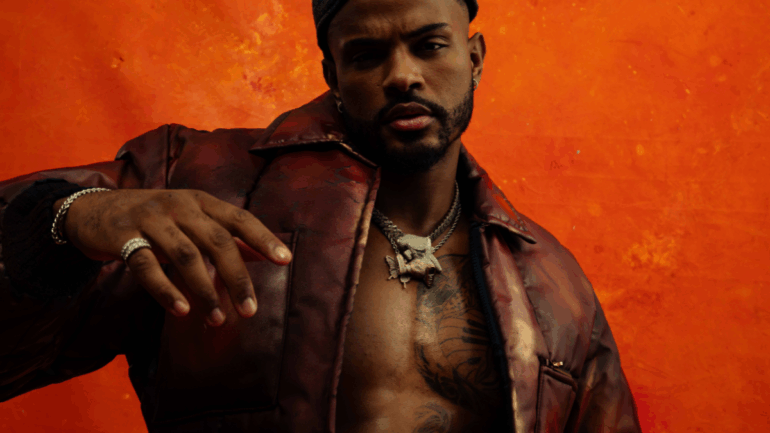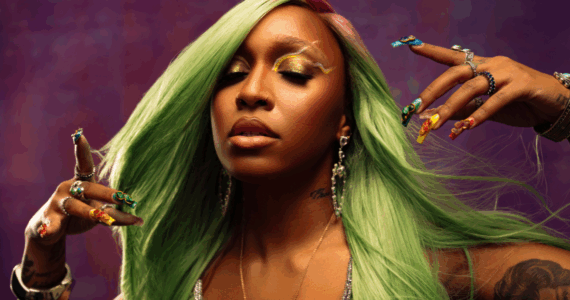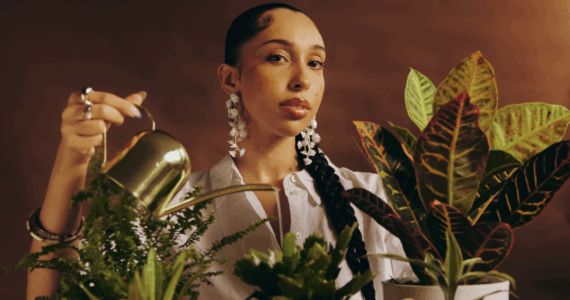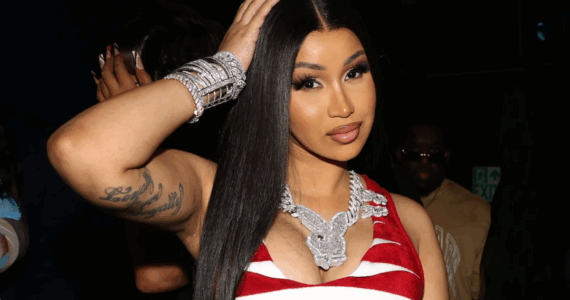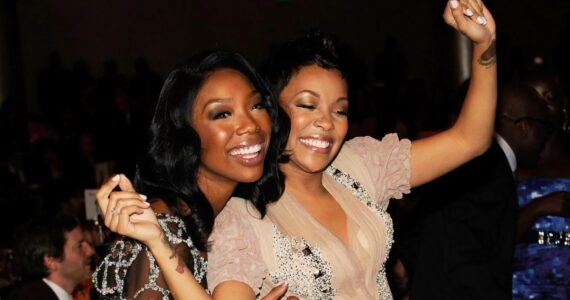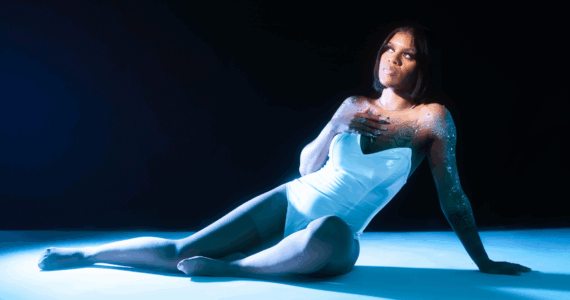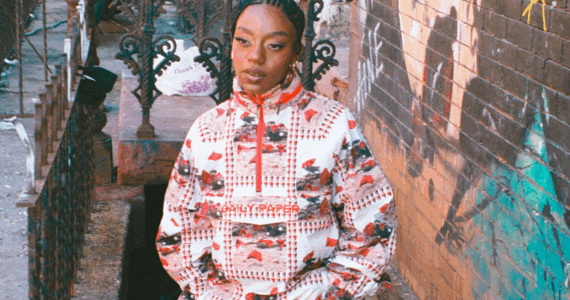As MEFeater’s November cover star, Trevor Jackson opens up his heart in I Love You, Goodbye (The Greatest Breakup Album of All Time), his most vulnerable chapter yet, blending heartbreak, growth, and creative evolution.
When Trevor Jackson walks into a room, the first thing you notice isn’t his height, his magnetic aura, or even the familiar face you’ve seen on screen for nearly two decades — it’s his style, and beyond that, it’s his energy. There’s a steady, grounded, intentional, masculine presence that lets you know instantly: Trevor Jackson is not the boy we met at eight years old playing Simba. He’s not the teenage heartthrob fans clung to on Disney. He’s not even the young romantic we watched navigate campus life on Grown-ish.
He is a man — and no pun intended, a grown man.
He’s layered and thoughtful, with a depth that goes far beyond his age. You can feel that he’s building himself brick by brick, and doing it with an honesty that most men don’t touch until much later in life. And because of that, this conversation unfolded in a way I didn’t expect. It wasn’t surface or even promotional; it felt like I was talking to a person in deep reflection. It revealed a man in the middle of becoming.
If his new album, I Love You, Goodbye (The Greatest Breakup of All Time), is the medicine, then this interview revealed the ingredients: love, ego, accountability, faith, self-awareness, and emotional honesty. These are lessons young, grown, and even older men could stand to learn from.
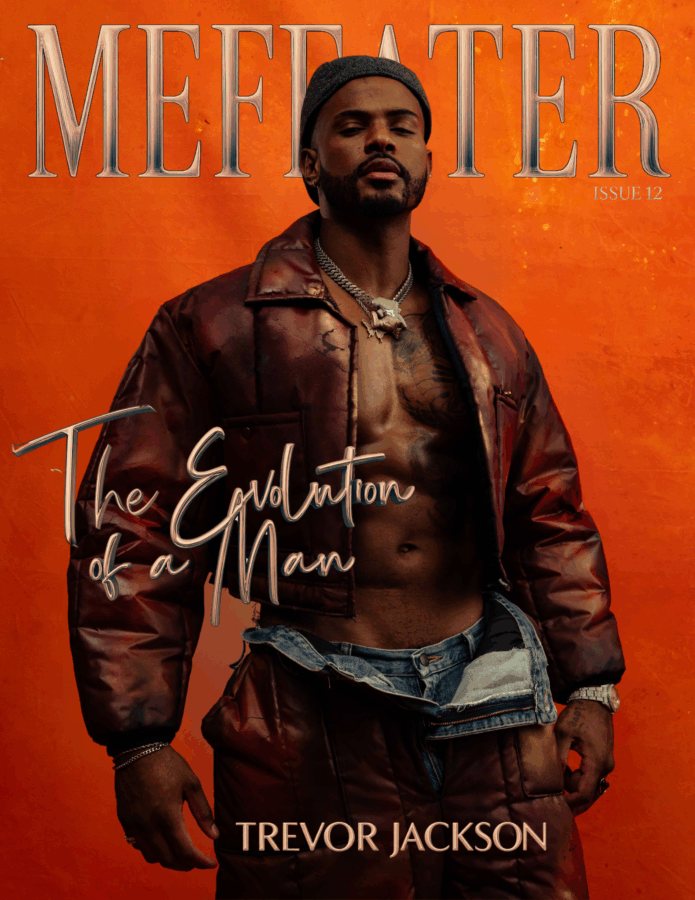
Photographed by Inari Briana
The Man Steps Forward
“I always aim to be to others what I would want someone to be to me“
I’ve interviewed a lot of men. Very few lead with heart. Trevor actually does.
Before we talked about his craft, acting career, or the album, we talked about kindness. Along with the quiet discipline of treating people well, not because of who they are, but because of who he (Trevor) chooses to be.
“I love God’s work,” he told me. “Every person I meet is something God has done.”
– Trevor Jackson
There’s a sincerity there that isn’t curated or media-trained. It stems from being raised in a family that loved loudly, parents who listened, and a childhood that taught him that softness is not a weakness, but rather a foundation.
As he described Indianapolis, his nieces and nephews, and even his brother being on set with him, I realized something: this conversation was going to be a lot deeper than I expected. Trevor is a family man through and through. And inside that is a clue to everything else — the way he loves, the way he creates, and the way he sees the world.
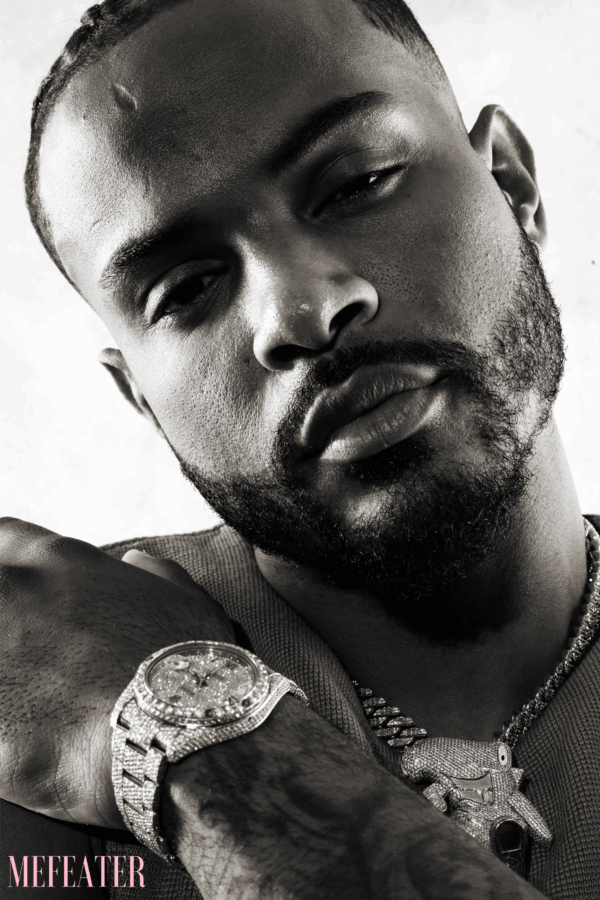
Photographed by Inari Briana
The Breakup, The Injury & The Birth of a New Musical Era
When Trevor talks about how this project started, he doesn’t dramatize it. He just lays the facts on the table.
“My relationship ended after six years,” he said. “Two weeks later, I tore my Achilles. Two weeks after that, the album poured out of me.”
No metaphor. No self-pity. Just the truth.
“It was the quickest album I’ve ever made,” he told me. “I vomited every song onto the page.”
Heartbreak pushed all the emotions to the surface, but the studio gave them shape.
“When I’m writing, everything slows down,” he said. “All the noise becomes quiet. I can go through the emotions one at a time instead of all at once.”
That’s why I Love You and Goodbye feel like two sides of the same diary, because that’s exactly what they are. It’s about a young man’s heartbreak, disappointment, and regrets.
“There are songs where I’m pissed,” he explained. “Songs where I admit I messed up. Songs where I’m still hoping. And songs where I finally accept we didn’t have it.”
When Masculinity Meets Vulnerability
He was sincere in his words. You can tell this relationship was not only his muse for creativity, but it was also an ego death. He was daring to go to a place where he’s never been before, and the reaction from his friends made that clear.
“When I played it for my boys, they were mad,” he laughed. “They said I was being too soft.”
Fortunately, he didn’t succumb to peer acceptance. He didn’t rewrite anything, toughen up the lyrics, or perform masculinity for the sake of image– he kept it real.
“That’s how I felt,” he said simply. “I wasn’t gonna hide that.”
There was something refreshing about how matter-of-fact he was. He wasn’t defensive or ashamed. He was just a man telling the truth about his feelings and how loving a woman made him even more of a man than before.
And then it hit me: this is the real beginning of his new era. It’s not the breakup, the injury, or even the album. It’s the honesty.
The honesty every girl wants to hear, and every young man fears.
Inside the Thick of Heartache
“You know you’re in the thick of it when you can’t breathe.”
Trevor said it so plainly, even I felt it in my chest. Every person who was once in love, or still in love, knows what that feels like. Your heart, mind, and body start reacting in ways you never imagined they could. You replay conversations, retrace memories, and wonder where you went wrong. It becomes the ache of your very being, the thing you wake up with, and eventually the saddest playlist and journal entry you’ve ever created.
Just like any love-struck human being, heartbreak for Trevor wasn’t poetic at first. It was suffocating. Messy. Loud. Then silent. Then overwhelming again.
But music gave him order. It slowed the emotional chaos into stages:
Anger.
Reflection.
Delusion.
Accountability.
Acceptance.
However, everything changed once Trevor got to the studio.
“When I’m writing, everything slows down,” he told me. “All the noise becomes quiet. I can go through the emotions one at a time instead of all at once.”
And that’s exactly what the two EPs sound like:
a man organizing his heartbreak, and why his getting into the studio changed everything.
“The studio is where I actually hear myself,” Trevor said. “Like, really hear myself. I don’t run from anything in there.”
Even in Collection, you hear him wrestling with self-protection:
“Love is the most dangerous game. I had to find that shit out the hard way.”
“Don’t wanna be another broken heart that you add to your collection.”
“I’ve been there before, I don’t wanna repeat it.”
The Making of a Modern Man
Each song on the EPs mirrors a different moment of love, loss, or the quiet ache in between. You get the softness and regret from I Love You; the clarity and letting go from Goodbye.
“You know you’re hurting when you can’t even pretend to be okay,” he told me. “That’s why I had to put it in the music — it was the only place I didn’t lie to myself.”
And if you listen closely, you’ll notice something else — underneath all the pain and confusion, there’s a man trying to tell the truth about himself. Not to win someone back. Not to look strong. Just to finally breathe again.

Photographed by Inari Briana
Soft Is Not Weak: The Poet Behind the Man
“Healing made me honest.”
Trevor didn’t say it dramatically; he said it like a fact. Because for him, healing isn’t just an emotional process; it’s a creative one. The inspiration behind his music isn’t only heartbreak or growth, it’s legacy. It’s the desire to be remembered with the same weight and reverence as the writers who shaped him.
“I want to be remembered like that,” he told me. “A million years from now, I want people to feel what I felt. I just want to leave the best parts of myself on Earth.”
He references Langston Hughes, Edgar Allan Poe, and Shakespeare — not just because they inspire him, but because he sees emotion the way great writers did: as something worth preserving and something bigger than the moment that created it. That’s the part many people miss about Trevor. Behind the voice, the acting roles, the heartthrob era, there’s a man who sees himself as a storyteller first, building a body of work he hopes will outlive him.
But artistry doesn’t erase the human lessons underneath it.
“You try to make yourself fit the wrong person,” he said. “But if someone elevates your life, it’s okay to change.”
He’s not afraid of that change anymore. He’s open to growth and not afraid of admitting when life reroutes you toward something bigger, even if it wasn’t in your plan. Maybe that’s why his acting journey feels so aligned. Grey’s Anatomy wasn’t on his vision board; however, destiny doesn’t need permission.
He auditioned casually. He got the call. Now he’s learning surgical techniques on set, asking real doctors questions, and causing fictional heartbreak across Grey-Sloan Memorial Hospital.
“I’m in discovery mode,” he said, smiling.
That openness and willingness to evolve, instead of performing old patterns, is the real through-line in this chapter of his life. It’s why his music feels intentional, why his acting keeps expanding, and why this era resonates beyond the tracks.
Softness didn’t weaken him.
Healing didn’t soften his impact or opportunities.
Art didn’t distract him from manhood or growth.
It sharpened him, shaped him, and made him whole.
Love as a Lesson, Not a Loss
When I asked Trevor what advice he would give his younger self, he didn’t pause or overthink it. The answer came straight from the gut:
“Everybody isn’t your friend.”
But he didn’t say it with resentment. He said it with the peaceful clarity of someone who has lived enough life and loved enough people to know the difference between losing someone and being protected from harm. And even then, he told me he wouldn’t change who he was. Loving hard is who he is, and these are lessons people of all ages go through.
Creating Legacy With Intention
We talked about Grown-ish, the years on television that shaped him just as much as they entertained millions. He spoke about how grateful he was for that chapter, how much he learned from being part of a cast that felt like family, and how it prepared him for the man and artist he is now. Grown-ish didn’t just launch a new phase of his career; it expanded his world, his craft, and his belief that representation in Hollywood could be more gentle, more honest, and more whole.
It’s why he’s dreaming bigger now — not just for himself but for the men coming behind him.
Trevor wants to build something he didn’t have. He wants to create a space where Black men in Hollywood mentor each other, support each other, and root for each other without ego or competition. A space where vulnerability is safe, where accountability is normal, and where success is shared. He wants unity to feel familiar, not rare.
“We could do so much more if we did it together,” he told me.
That, to Trevor, is real manhood.
It’s not dominance, bravado, or silence. It’s community, accountability, and love.
The Architect of His Manhood
Trevor Jackson is stepping into this next chapter with clarity, faith, discipline, self-awareness, talent, and an emotional vocabulary most men take decades to develop. I Love You, Goodbye (The Greatest Breakup Album of All Time) is more than an album; it’s the culmination of everything he’s learned in life, in love, in heartbreak, in Hollywood, and in becoming. It’s his mirror, confession, and release.
Trevor isn’t just entering a new era; he is designing it. He is, truly, the architect of his own manhood.
And this is only the beginning.
Stay tuned for MEFeater’s exclusive video interview with Trevor Jackson, where he reflects on I Love You, Goodbye (The Greatest Breakup Album of All Time), his growth, and what’s ahead. The full conversation will be available tomorrow on MEFeater’s new podcast, Getting Down to Business, on YouTube.
ALBUM LINK: Listen to I Love You, Goodbye (The Greatest Breakup Album of All Time) HERE
Listen to I LOVE YOU EP HERE
Listen to GOODBYE EP HERE
Follow MEFeater on Twitter, Instagram, Facebook, and Pinterest for more music news and updates. FOLLOW TREVOR JACKSON: INSTAGRAM | YOUTUBE | X | TIKTOK
Inside MEFeater’s November Issue: The Evolution Of A Man | Trevor Jackson for MEFeater Magazine
Photography by Inari Briana

Photographed by Inari Briana
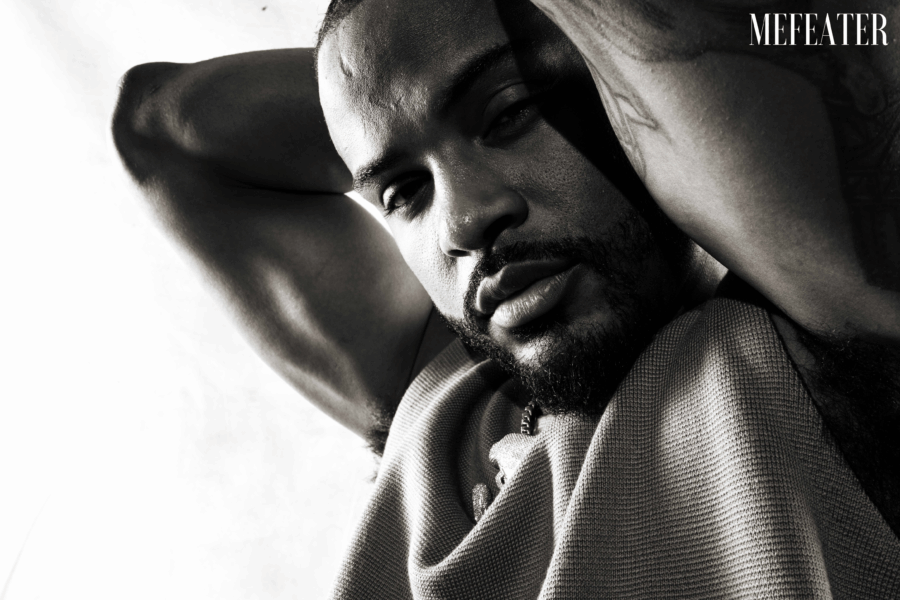
Photographed by Inari Briana

Photographed by Inari Briana

Photographed by Inari Briana
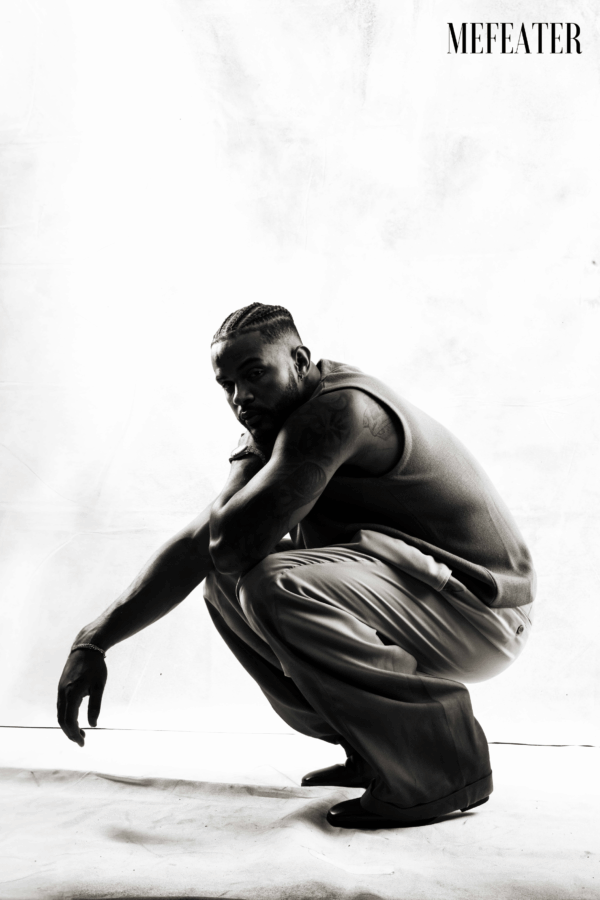
Photographed by Inari Briana

Photographed by Inari Briana
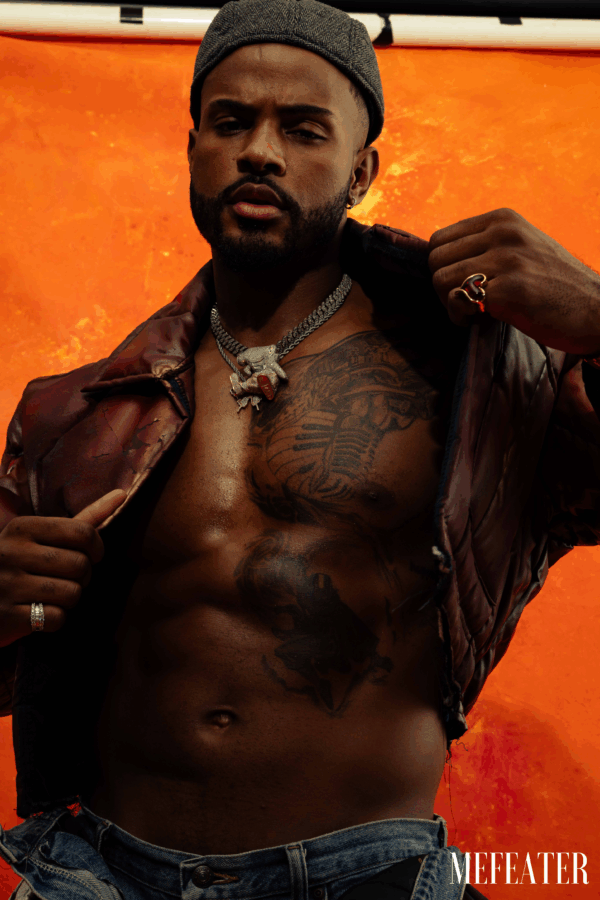
Photographed by Inari Briana

Photographed by Inari Briana
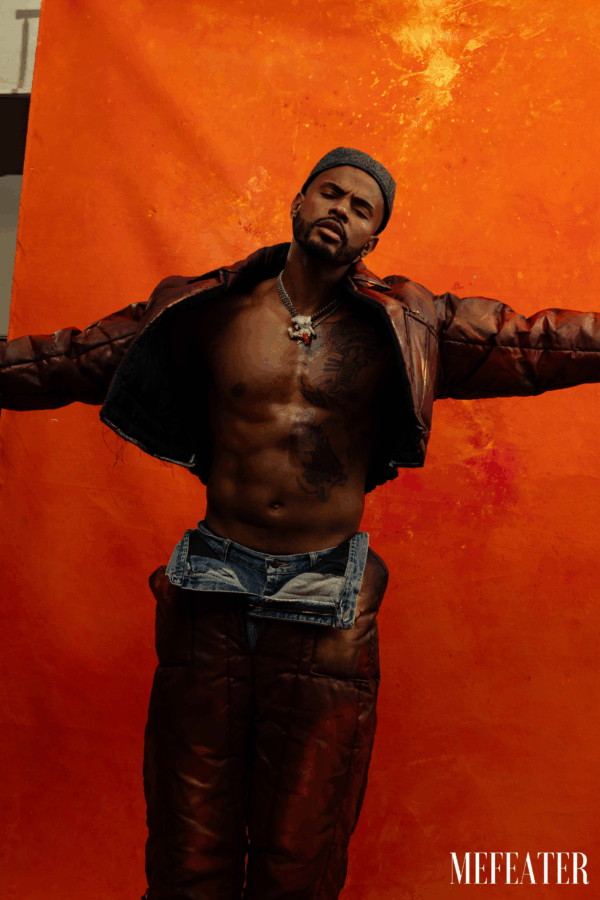
Photographed by Inari Briana

Photographed by Inari Briana
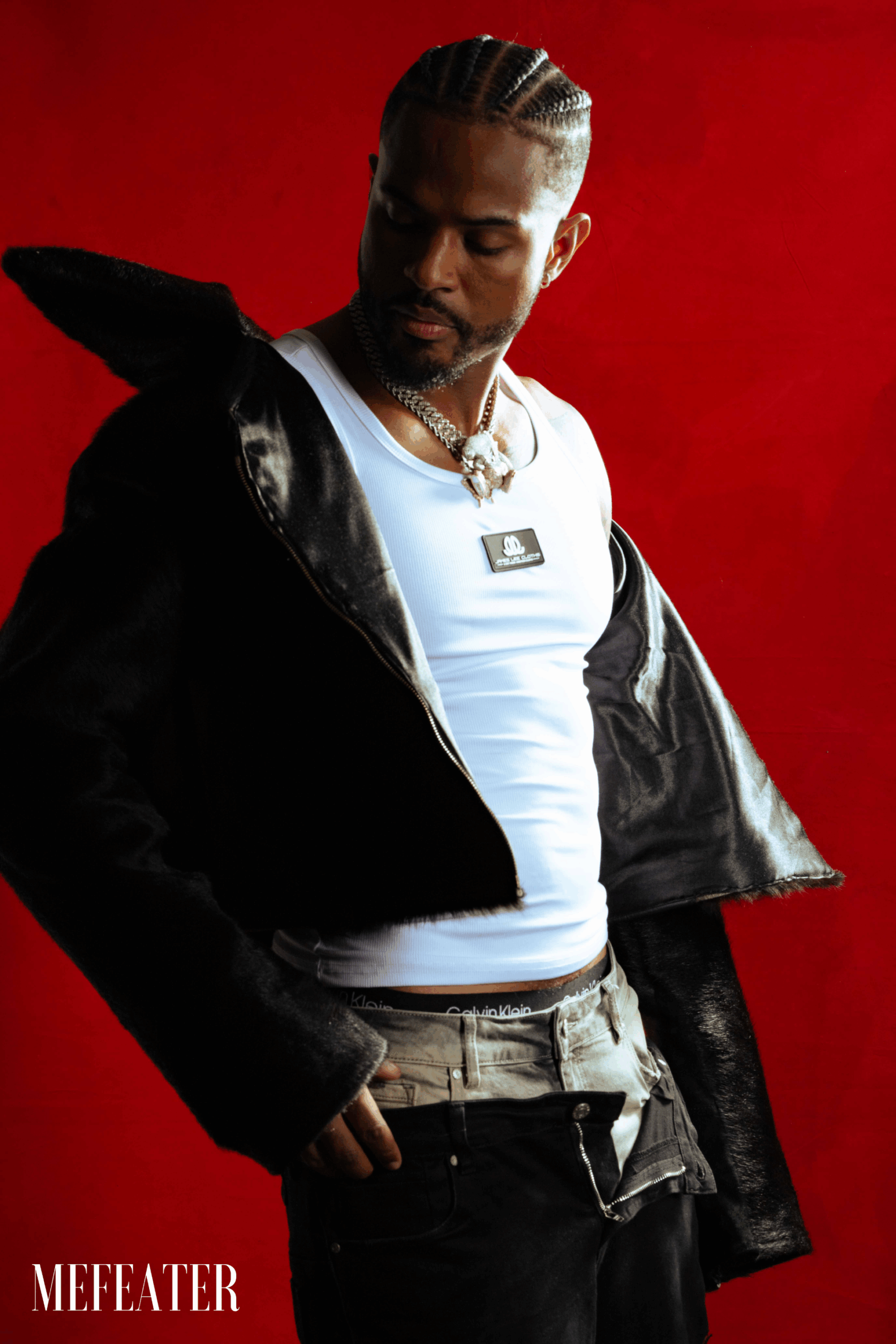
Photographed by Inari Briana
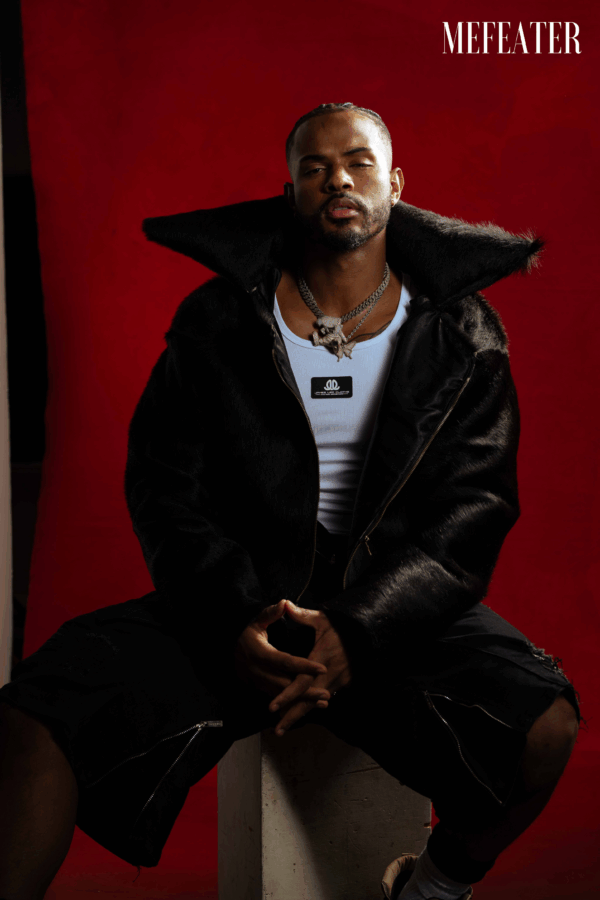
Photographed by Inari Briana
Photoshoot and Video Shoot credits:
Photography & Creative Direction: Inari Briana
Interviewed and Written by: Gabrielle Amani Williams
Editors: Rahel “Ra” Atalay & Adavie Gutierrez | Stylists: Jarron Jones, Akanksha Karki, Lord Smiff | Grooming: John Michal | Light Tech: Chris Millsap | Production Assistants: Cherrelle Moore, Amé Reinke, Jaden Zimmerman, Brooklyn Prewitt | Producer: Emmanuel Nkolo | Creative Producer: Sam Wikina | 1st AD: Patrick Tennerson | DP: Tony Nava |


